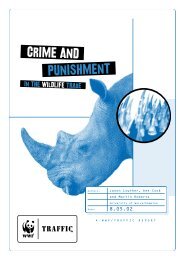Deeper Luxury Report - WWF UK
Deeper Luxury Report - WWF UK
Deeper Luxury Report - WWF UK
You also want an ePaper? Increase the reach of your titles
YUMPU automatically turns print PDFs into web optimized ePapers that Google loves.
are not meeting the challenge. A survey in the <strong>UK</strong> with<br />
Amnesty International found that more than threequarters<br />
of retailers who responded reported having<br />
no auditing procedures in place to combat the trade<br />
in conflict diamonds. Almost a third of those surveyed,<br />
including leading luxury house Cartier, failed to respond<br />
to repeated requests from Amnesty and Global Witness<br />
to provide information about their policies. 86<br />
Gold<br />
Mining for gold and other precious metals used in<br />
luxury goods poses significant social and environmental<br />
challenges. For example, gold mining can displace<br />
communities, contaminate drinking water, hurt workers<br />
and destroy pristine environments. In the past, the mining<br />
industry has threatened natural areas, including those<br />
that are officially protected. Nearly three-quarters of<br />
active mines and exploration sites encroach on regions<br />
that have been defined as having high conservation<br />
value. 87<br />
Mining is a major threat to biodiversity and to<br />
frontier forests (large tracts of relatively undisturbed<br />
forest). One example comes from the Indonesian<br />
province of West Papua, home to the largest protected<br />
area in South-east Asia, containing five <strong>WWF</strong>-classified<br />
ecoregions in its 2.5 million-hectare expanse. 88<br />
Next to<br />
this Lorentz National Park, now a World Heritage Site,<br />
is a large, open-pit mine operated by PT Freeport<br />
Indonesia. This mine has caused devastating harm to<br />
its immediate environment by dumping 110,000 tons<br />
of toxic mine tailings each day into the Ajikwa river. By<br />
the time it closes, it will have excavated a hole covering<br />
an estimated 230 km 2 in the forest that will be visible<br />
from space. 89<br />
In Mongolia, rapid expansion of the gold mining industry<br />
has led to the deviation of rivers, loss of water flow and<br />
degradation of water quality, creating erosion and<br />
undermining traditional herding communities. Much of<br />
the mining activity is illegal and conducted without prior<br />
impact assessments. While <strong>WWF</strong> is working at the local<br />
level with communities, decision-makers and investors<br />
to promote more responsible mining in Mongolia 90<br />
, we<br />
believe that more should be done by luxury brands to<br />
introduce better standards throughout their supply chains.<br />
Earthworks and Oxfam have helped in this regard by<br />
developing a set of “Golden Rules” of social, environmental<br />
and human rights criteria for more responsible gold<br />
production (Box 2). Their No Dirty Gold campaign<br />
encourages brands and retailers to endorse these<br />
criteria and to persuade their suppliers to meet them.<br />
The campaign is supported by a handful of luxury<br />
brands, including Cartier, Piaget, Tiffany & Co and<br />
Van Cleef & Arpels. 91<br />
In addition, there are now over 70<br />
member companies across the gold and diamond supply<br />
chain that have joined the Council for Responsible<br />
Jewellery Practices, to promote action from mining to<br />
retailing: (see: www.responsiblejewellery.com)<br />
Despite these advances, much remains to be done in<br />
order to clean up the production and trading of gold and<br />
other precious metals. The luxury watch and jewellery<br />
Box 2:<br />
Golden Rules for Mining<br />
Respect for basic human rights outlined<br />
in international conventions and law.<br />
Free, prior and informed consent of<br />
affected communities.<br />
Safe working conditions.<br />
Respect for workers’ rights and labour<br />
standards (including the eight core<br />
ILO conventions).<br />
Ensure that operations are not located in<br />
areas of armed or militarised conflict.<br />
Ensure that projects do not force<br />
communities off their land.<br />
No dumping of mine wastes into oceans,<br />
rivers, lakes or streams.<br />
Ensure that projects are not located in<br />
protected areas, fragile ecosystems or other<br />
areas of high conservation or ecological value.<br />
Ensure that projects do not generate<br />
sulphuric acid in perpetuity.<br />
Cover all costs of closing down and cleaning<br />
up mine sites.<br />
Fully disclose information about the social<br />
and environmental effects of projects.<br />
Allow independent verification of the above<br />
<strong>Deeper</strong> <strong>Luxury</strong><br />
26/27


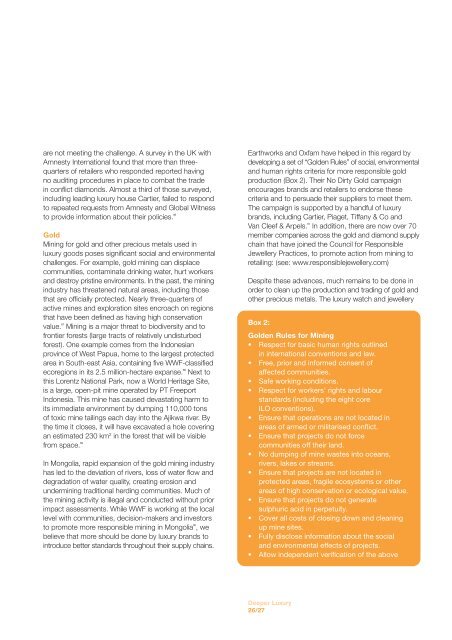
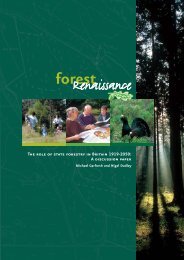
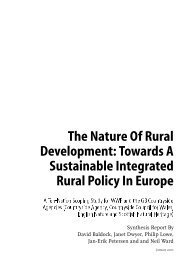
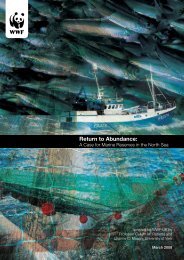
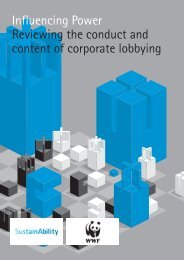
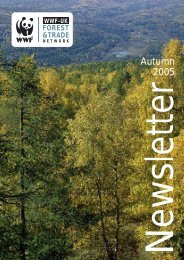
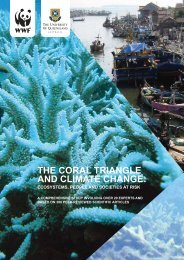
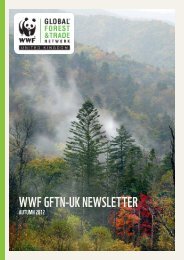
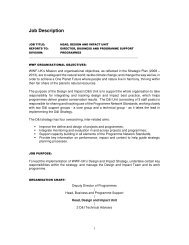
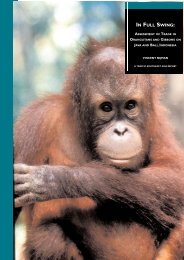
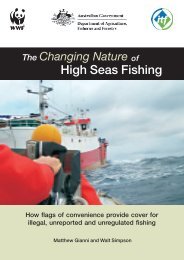
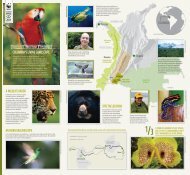
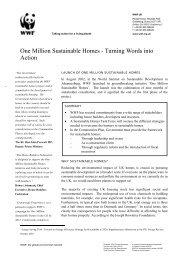
![[PDF] Causes for concern: chemicals and wildlife - WWF UK](https://img.yumpu.com/31929970/1/184x260/pdf-causes-for-concern-chemicals-and-wildlife-wwf-uk.jpg?quality=85)
